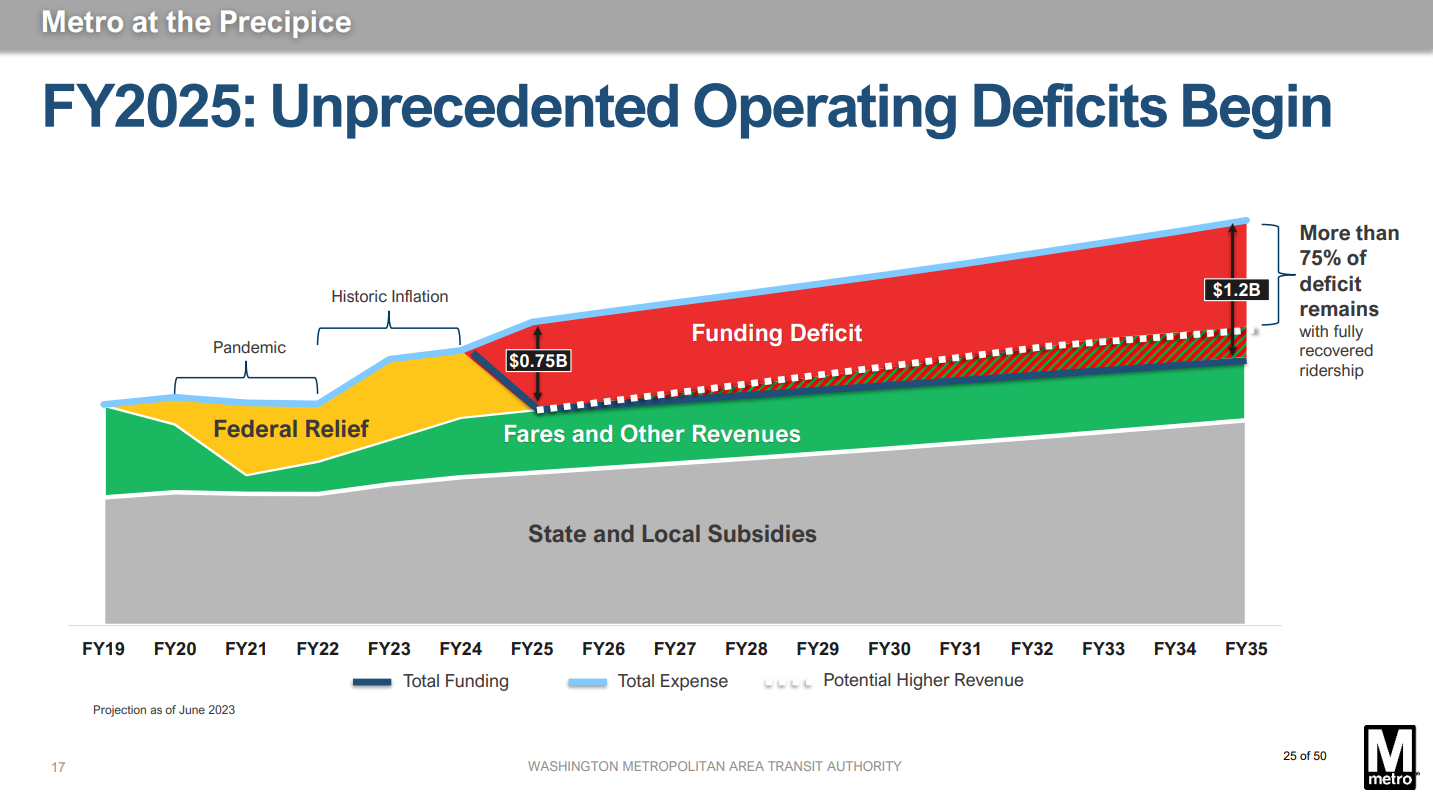For immediate release: June 22, 2023
Metro lays out potential service impacts needed to close $750 million budget shortfall in FY25
Metro today detailed its future financial planning to address structural funding issues that will leave a projected $750 million shortfall in the fiscal year 2025 budget when federal covid relief funding runs out. Without an increase in funding, Metro would be forced to make drastic cuts to rail, bus, and paratransit services across the region.
The long-term financial issues facing Metro, come amid improving service, investments in modernization, and growing ridership. As of May, weekday ridership on Metrorail and Metrobus is at 50 percent and 88 percent of pre-pandemic levels, respectively, with ridership as high as 800,000 trips or more combined on bus and rail.
Customer satisfaction is also rising, with rail at 84 percent, a 16-point increase over the same time last year and bus up two points to 71 percent. Fare increases and service cuts alone would not close the gap and could devastate the region financially and economically, reversing the progress made over the past year.
"We cannot afford to let Metro fail. It is too important to the region, our economy and quality of life, connecting people to jobs and family, reducing gridlock, and cutting carbon emissions," said Metro General Manager and Chief Executive Officer Randy Clarke. "Concerns were first raised about the lack of a dedicated and ongoing funding source in 1976 when Metrorail opened, and it is time for the region to come together to solve this serious financial challenge."
Today, Metro staff presented a detailed analysis on Metro’s future financial planning to the Board of Directors, including the vital role of Metro and impact of potential cuts to the region.
"Without a strong, reliable transit system millions of people across the region stand to lose," said Metro Board Chair Paul C. Smedberg. "Customers would see longer waits, constant gridlock, higher fares and reduced operating hours and the region’s economy could stagnate."
Nearly three million people living in the region, 70 percent of jobs, and 50 percent of employers are located within half-mile of a Metro station or bus stop. Given Metro’s reach, the economic impact of service cuts would drastically reduce transit’s value to the region.
Metro's structural funding issues were accelerated by the pandemic with an unprecedented shortfall projected for FY25, the result of inflation and labor costs, decreased revenue from ridership, and subsidy reduction and forgone annual funding increases to support our local and state funding partners during the pandemic.
Balancing the budget with service cuts would require eliminating two-thirds of Metro's existing service, with no service after 9:30 p.m. All but 37 of 135 bus lines would no longer operate, customers would wait 20-30 minutes for trains on all lines, and MetroAccess would serve a much smaller area with less hours.
Transit agencies across the country, from Chicago to Los Angeles are facing similar financial difficulties starting as early as FY25 due to the pandemic. In New York and California lawmakers have come together to pass legislation to save their transit agencies from financial collapse.
Over the next year, Metro will engage with federal, state, and local leaders, businesses, and other key stakeholders to explore long-term funding solutions that would be incorporated into the budget process and implemented next year.
View full presentation here.















